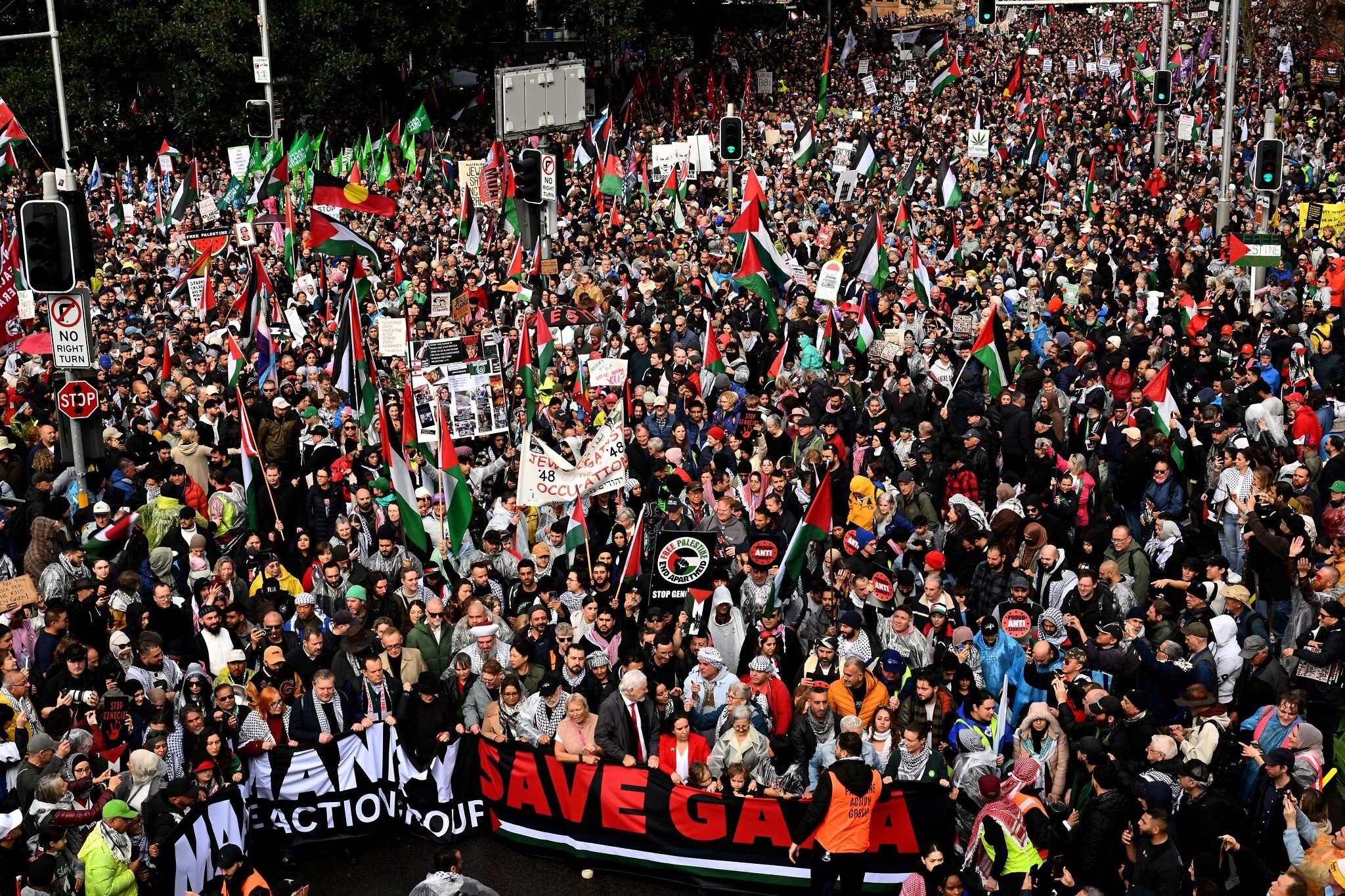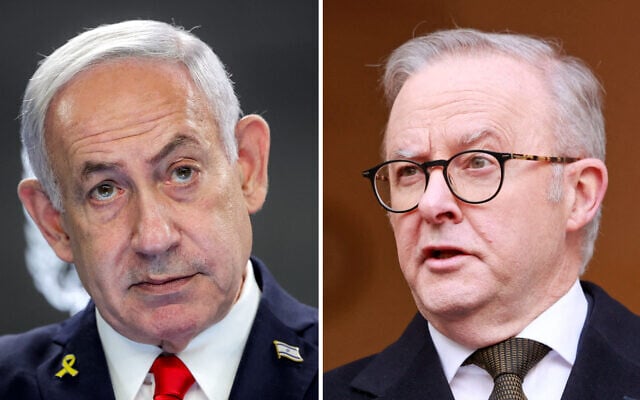


SYDNEY, Australia — Australia’s decision to recognize a Palestinian state came after the government sensed a major shift in the domestic mood over the war in Gaza, and showed that Canberra was unafraid of upsetting Israel, historically one of its staunchest allies.
The August 11 announcement came days after some 90,000 people marched across Sydney’s iconic Harbour Bridge, in a protest whose organizers called for sanctions on Israel, an Israeli withdrawal from Gaza and an end to restrictions on aid deliveries to the enclave.
“It just became politically unpalatable to be continuing to defend Israel and lay all the blame at the feet of Hamas,” said Martin Kear, an academic at Sydney University specializing in the Israeli-Palestinian conflict.
The Hamas terror group’s October 7, 2023, invasion and mass slaughter in southern Israel triggered the ongoing war. The group continues to hold 50 hostages, 20-22 of whom are believed by Israeli authorities to be alive.
The Palestinian statehood decision has strained relations between Israel and Australia to a degree not seen in decades.
Senior politicians in both countries have traded barbs, with Prime Minister Benjamin Netanyahu launching personal attacks on Australian Prime Minister Anthony Albanese. The visas of Australian diplomats working in the West Bank have been revoked and an Israeli lawmaker was barred from entering Australia.
A leading Jewish group in Australia has called for calm, while offering a rare rebuke of Netanyahu. Some Jews in Australia say the tension makes them feel unsafe, after a spate of antisemitic attacks in the country over the last year.
Opinion polling in Australia about the Gaza war now indicates increasing sympathy towards the Palestinian cause.
August polling by DemosAU showed 45% supported Australia recognizing a Palestinian state before a negotiated peace deal, with 23% opposed. Support was up from 35% a year previously.
The Sydney Morning Herald, one of Australia’s leading newspapers, said in an editorial this month that public sympathy for Israel in the country began to “rapidly erode once the apocalyptic specter of famine rode into Gaza.”
Images of malnourished children in Gaza — which were widely disseminated last month, in some cases omitting crucial details about the subjects’ medical conditions — have also hardened the resolve of lawmakers, said Charles Miller, a lecturer in international relations at the Australian National University.
“I think they have changed an awful lot of minds among policymakers in Australia, as they have in other countries,” he said.
The political fallout has alarmed the Executive Council of Australian Jewry, an umbrella group for more than 200 Jewish organizations, which sent letters to Albanese and Netanyahu on Wednesday, urging them to de-escalate tensions.
“If things need to be said publicly, they should be said using measured and seemly language befitting national leaders,” the letters read.
“When the temperature of the political discourse in the media is so focused on criticizing Israel, there will be ramifications for the local Jewish community, and that’s something that we need to reflect on,” said Eli Feldman, the rabbi at Newtown Synagogue in Sydney, which was defaced with antisemitic graffiti in January.
Australia’s Jewish community, which numbers around 120,000 and makes up about 0.4% of the country’s population, has been among the hardest hit by the global surge in antisemitism since October 7, 2023.
The country experienced more than 2,000 anti-Jewish incidents between October 2023 and September 2024, more than quadruple the number from the year before Hamas’s October 7 assault that sparked the Gaza war, according to the Executive Council of Australian Jewry (ECAJ). In recent months, Jews there have seen synagogues, schools and homes firebombed, as well as two nurses threatening to kill Jewish patients in their hospital.
Australia was an early supporter of the creation of a Jewish state, and has long advocated for Israel in international disputes, though both main political parties back a two-state solution in principle.
While Albanese had personally long supported a Palestinian state until now, his political pragmatism had made him wary of backing official recognition.
That changed with the shift in the public mood while his landslide victory in May’s general election reduced the risk of domestic pushback, said Jessica Genauer, an academic at Flinders University specializing in international conflict.
Key allies, the United Kingdom, France and Canada, all said they would recognize a Palestinian state in the weeks before Australia, which also made Albanese’s job easier, analysts said.
“They don’t want to lead on carving new pathways in terms of their policies on this, but on the other hand, they don’t want to be left behind by key allies around the world,” Genauer said. “Albanese is still a pragmatic and cautious person by nature.”
Netanyahu has repeatedly attacked Albanese in a series of interviews and social media posts since August 11, calling the Australian leader “weak” and accusing him of “betraying” Israel.
While Albanese has played down the feud, Netanyahu shows no sign of backing down. He kept up the rhetoric with an interview with Sky News Australia that aired late on Thursday.
“I’m sure he has a reputable record as a public servant, but I think his record is forever tarnished by the weakness that he showed in the face of these Hamas terrorist monsters,” he said.




